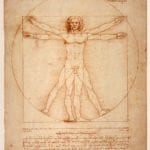BRILLIANT AND BEAUTIFUL BLOG
Favorite Books of 2024
As is now my custom, I am excited to list my favorite reads of 2024, in the categories of philosophy, apologetics/theology, spiritual formation, fiction, and non-fiction. I read 44 books in 2024. For each book read, I enter the date completed, title, author, and a one sentence summary of the book in my book log. Here are the top three books for each category.
Favorite Books of 2023
 Fueled by the conviction that stories sustain us because we were made to be nourished on the good, the true, and the beautiful, I determined to read one fiction book a month for this past year. And I read some very good stories! In addition to fiction, I have benefitted greatly this year from some solid works in philosophy, theology, biography, and spiritual formation. Without further ado, here are my favorite books read in 2023. As is custom, in my book log, I record the book title, author, and date completed, along with a one sentence description. This has been my practice since 2009. My book log now includes 635 entries. This year I read 43 books.
Fueled by the conviction that stories sustain us because we were made to be nourished on the good, the true, and the beautiful, I determined to read one fiction book a month for this past year. And I read some very good stories! In addition to fiction, I have benefitted greatly this year from some solid works in philosophy, theology, biography, and spiritual formation. Without further ado, here are my favorite books read in 2023. As is custom, in my book log, I record the book title, author, and date completed, along with a one sentence description. This has been my practice since 2009. My book log now includes 635 entries. This year I read 43 books.
Favorite Books of 2022
 I love to read. Of course, being a professor helps. I get to read as part of my job. That’s good. But I also love to read for the sheer pleasure of it. When it comes to fiction, I love entering into secondary worlds and journeying along with the characters of the story. Often non-fiction reads like a good story too: life is life, story is story, and often the two kiss (a loose paraphrase of one of my favorite nonfiction stories of the year, All that is Sad is Untrue).
I love to read. Of course, being a professor helps. I get to read as part of my job. That’s good. But I also love to read for the sheer pleasure of it. When it comes to fiction, I love entering into secondary worlds and journeying along with the characters of the story. Often non-fiction reads like a good story too: life is life, story is story, and often the two kiss (a loose paraphrase of one of my favorite nonfiction stories of the year, All that is Sad is Untrue).
Favorite Books of 2021
 I love to read. It’s partly why I’m an academic today. What could be better than reading, writing, teaching, and learning every day? Reading books awakens me: to truth, goodness, and beauty. I try, each year, to read broadly. This year, I managed to read 47 books. I’ve been recording every book read in a book log for over 10 years now. Whenever I finish a book, I list the date finished, the title, author, and a one sentence summary of the book. As has become my custom, I offer to you my favorite reads of the past year in philosophy, apologetics and theology, fiction, and non-fiction.
I love to read. It’s partly why I’m an academic today. What could be better than reading, writing, teaching, and learning every day? Reading books awakens me: to truth, goodness, and beauty. I try, each year, to read broadly. This year, I managed to read 47 books. I’ve been recording every book read in a book log for over 10 years now. Whenever I finish a book, I list the date finished, the title, author, and a one sentence summary of the book. As has become my custom, I offer to you my favorite reads of the past year in philosophy, apologetics and theology, fiction, and non-fiction.
Favorite Books of 2020
 2020 has been a year of change for my family. We moved in the middle of a pandemic from Texas to Florida. I started a new job as a professor of philosophy and the director of a new program in philosophy at Palm Beach Atlantic University. We left behind two of our children in Texas–both college students at Baylor. Our younger two sons have had to endure an on-again/off-again year at a new school. But there have been many constants, even in the midst of change. Family. Jesus. And the reading of books! And this blog post.
2020 has been a year of change for my family. We moved in the middle of a pandemic from Texas to Florida. I started a new job as a professor of philosophy and the director of a new program in philosophy at Palm Beach Atlantic University. We left behind two of our children in Texas–both college students at Baylor. Our younger two sons have had to endure an on-again/off-again year at a new school. But there have been many constants, even in the midst of change. Family. Jesus. And the reading of books! And this blog post.
Month Six as a Henry Fellow: Human Uniqueness, Origin, and Destiny
 I’m having a fantastic time as a Henry Fellow at Trinity Evangelical Divinity School this academic year. To date, I’ve written four chapters in my popular level book tentatively called Eleven Stones: Discovering the True Story of the World, the majority of a chapter on “Teleological Arguments” for a textbook, a chapter on “Neo-Aristotelian Accounts of Divine Creation” to be included in a forthcoming book on divine causation, and the first part of a book on Theism and the Nature of Nature.
I’m having a fantastic time as a Henry Fellow at Trinity Evangelical Divinity School this academic year. To date, I’ve written four chapters in my popular level book tentatively called Eleven Stones: Discovering the True Story of the World, the majority of a chapter on “Teleological Arguments” for a textbook, a chapter on “Neo-Aristotelian Accounts of Divine Creation” to be included in a forthcoming book on divine causation, and the first part of a book on Theism and the Nature of Nature.
My Favorite Books of 2019
 Each year around this time I list my top books read over the past year in philosophy, theology, apologetics, fiction, and non-fiction. As much as it pains me, I’ll restrict myself to the top three in each of these categories. As is custom, I will list them with my one sentence description of the book, as written in my book log. As a bonus, this year I also include the favorite reads of Ethel and the kids! Here we go:
Each year around this time I list my top books read over the past year in philosophy, theology, apologetics, fiction, and non-fiction. As much as it pains me, I’ll restrict myself to the top three in each of these categories. As is custom, I will list them with my one sentence description of the book, as written in my book log. As a bonus, this year I also include the favorite reads of Ethel and the kids! Here we go:
Month Three as a Henry Fellow: Life, Participation, and the Wingfeather Saga
 This month, I have two main study and writing goals. First, I plan to read as much of the literature as I can on the origin of life to get a sense of the current state of play in science. The goal is to write one chapter for my popular level book, Eleven Stones, on the origin of life and then one section of a technical article examining how one’s philosophy of nature influences how the scientific evidence for origins is assessed. I’ve written the first section to the technical paper, setting out the two dominant ways of looking at the universe—the neo-Humean view and the neo-Aristotelian view. Now the real work begins…
This month, I have two main study and writing goals. First, I plan to read as much of the literature as I can on the origin of life to get a sense of the current state of play in science. The goal is to write one chapter for my popular level book, Eleven Stones, on the origin of life and then one section of a technical article examining how one’s philosophy of nature influences how the scientific evidence for origins is assessed. I’ve written the first section to the technical paper, setting out the two dominant ways of looking at the universe—the neo-Humean view and the neo-Aristotelian view. Now the real work begins…
Month Two as a Henry Fellow
 I’m enjoying my time at Trinity Evangelical Divinity School working on the doctrine of creation. My primary focus this past month has been a paper on neo-Aristotelian accounts of divine creative activity. I hope to defend a particular version at some point, but for now, I’m interested in what neo-Aristotelian models of divine creation, if any, are viable (that is, consistent with contemporary science, pre-philosophical intuition, and traditional theology). I’ve been reading on the nature of substance, causal powers, teleology, substantial forms, and the like.
I’m enjoying my time at Trinity Evangelical Divinity School working on the doctrine of creation. My primary focus this past month has been a paper on neo-Aristotelian accounts of divine creative activity. I hope to defend a particular version at some point, but for now, I’m interested in what neo-Aristotelian models of divine creation, if any, are viable (that is, consistent with contemporary science, pre-philosophical intuition, and traditional theology). I’ve been reading on the nature of substance, causal powers, teleology, substantial forms, and the like.
Month One as a Henry Fellow
 I’m just about to begin a year of research as a Henry Fellow at Trinity Evangelical Divinity School. I’ll be commuting Monday through Thursday from Texas to Illinois. That will be a lot of fun (not!). What will be a lot of fun (and interesting too) is exploring the philosophical underpinnings of the doctrine of divine activity with a group of scholars. My specific project is to explore neo-Aristotelian accounts of divine creative activity.
I’m just about to begin a year of research as a Henry Fellow at Trinity Evangelical Divinity School. I’ll be commuting Monday through Thursday from Texas to Illinois. That will be a lot of fun (not!). What will be a lot of fun (and interesting too) is exploring the philosophical underpinnings of the doctrine of divine activity with a group of scholars. My specific project is to explore neo-Aristotelian accounts of divine creative activity.

 Fueled by the conviction that stories sustain us because we were made to be nourished on the good, the true, and the beautiful, I determined to read one fiction book a month for this past year. And I read some very good stories! In addition to fiction, I have benefitted greatly this year from some solid works in philosophy, theology, biography, and spiritual formation. Without further ado, here are my favorite books read in 2023. As is custom, in my book log, I record the book title, author, and date completed, along with a one sentence description. This has been my practice since 2009. My book log now includes 635 entries. This year I read 43 books.
Fueled by the conviction that stories sustain us because we were made to be nourished on the good, the true, and the beautiful, I determined to read one fiction book a month for this past year. And I read some very good stories! In addition to fiction, I have benefitted greatly this year from some solid works in philosophy, theology, biography, and spiritual formation. Without further ado, here are my favorite books read in 2023. As is custom, in my book log, I record the book title, author, and date completed, along with a one sentence description. This has been my practice since 2009. My book log now includes 635 entries. This year I read 43 books. I love to read. Of course, being a professor helps. I get to read as part of my job. That’s good. But I also love to read for the sheer pleasure of it. When it comes to fiction, I love entering into secondary worlds and journeying along with the characters of the story. Often non-fiction reads like a good story too: life is life, story is story, and often the two kiss (a loose paraphrase of one of my favorite nonfiction stories of the year, All that is Sad is Untrue). (more…)
I love to read. Of course, being a professor helps. I get to read as part of my job. That’s good. But I also love to read for the sheer pleasure of it. When it comes to fiction, I love entering into secondary worlds and journeying along with the characters of the story. Often non-fiction reads like a good story too: life is life, story is story, and often the two kiss (a loose paraphrase of one of my favorite nonfiction stories of the year, All that is Sad is Untrue). (more…)







